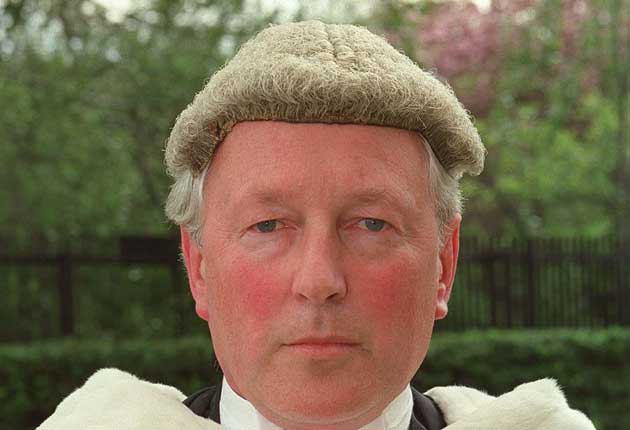Mr Justice Eady to be replaced as senior judge on libel and privacy

Your support helps us to tell the story
From reproductive rights to climate change to Big Tech, The Independent is on the ground when the story is developing. Whether it's investigating the financials of Elon Musk's pro-Trump PAC or producing our latest documentary, 'The A Word', which shines a light on the American women fighting for reproductive rights, we know how important it is to parse out the facts from the messaging.
At such a critical moment in US history, we need reporters on the ground. Your donation allows us to keep sending journalists to speak to both sides of the story.
The Independent is trusted by Americans across the entire political spectrum. And unlike many other quality news outlets, we choose not to lock Americans out of our reporting and analysis with paywalls. We believe quality journalism should be available to everyone, paid for by those who can afford it.
Your support makes all the difference.Mr Justice Eady, whose rulings form much of the backbone of UK privacy law, is to hand over responsibility for defamation and privacy cases. From the beginning of October, his role as the senior media judge in England and Wales will be inherited by Mr Justice Tugendhat.
It is a move that is likely to be welcomed by much of the media, who have greeted many of Mr Justice Eady's rulings with a chorus of criticism. These rulings involved a number of gagging orders that prevented papers from publishing stories about allegations of affairs among celebrities. Daily Mail editor Paul Dacre once described him as the architect of a "judge-made privacy law" through his interpretation of the Human Rights Act.
One of his most famous cases was awarding Formula One executive Max Mosley £60,000 damages against News Group newspapers for invasion of privacy.
Mr Justice Eady is well-known for his criticism of the media. "The media have nowhere to vent their frustrations other than through personal abuse of the particular judge who happens to have made the decision," he said earlier this year. "It has become fashionable to label judges not as independent but rather as 'unaccountable', and as hostile to freedom of speech."
Mr Justice Tugendhat has generally adopted a more nuanced interpretation of the Human Rights Act. Controversial cases which have received widespread media attention include that of footballer John Terry's failed attempt to gain a super-injunction which would have prohibited media reports of his extramarital affair.
Terry, who had obtained a gagging order preventing the press from reporting the story, saw the order subsequently lifted by Mr Justice Tugendhat, who stated that it "was not necessary or proportionate".
Other high-profile cases involving the new senior libel judge include the dispute over the wedding photos of Catherine Zeta Jones and Michael Douglas. He represented the Hollywood couple in 2003 when they successfully sued Hello! magazine for taking unauthorised pictures of their nuptials after they had signed an exclusive deal with rival magazine OK!
Michael Tugendhat was educated at Ampleforth College and Gonville and Caius College, Cambridge, before being awarded the Henry Fellowship at Yale University Law School.
He was called to the Bar of Inner Temple in 1969 and was appointed a Queen's Counsel in 1986, and a High Court Judge in 2003.
His elder brother, Christopher, is the businessman and Conservative politician who was formerly MP for City of London and Westminster, and vice-president of the European Commission from 1981-1985.
Join our commenting forum
Join thought-provoking conversations, follow other Independent readers and see their replies
Comments